Table of Contents
Best Sesame Seed Substitutes by Use Case
When you need sesame seed alternatives, the best choice depends on your specific cooking application. For Asian cuisine, toasted poppy seeds with a dash of toasted rice powder provides the closest flavor match. For baking and bread toppings, sunflower seeds offer similar crunch and visual appeal. If you have a sesame allergy, pumpkin seeds (pepitas) are the safest alternative with comparable nutritional value. In recipes requiring binding properties like veggie burgers, ground flaxseeds work best at a 1:3 ratio with water. For tahini replacement, sunflower seed butter maintains similar texture while avoiding common allergens.
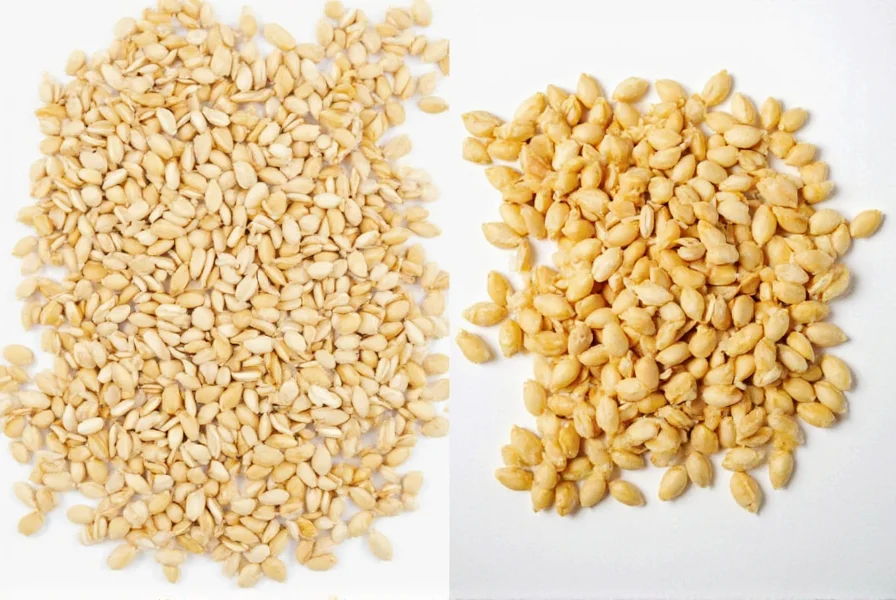
Top Substitutes for Asian Dishes
Replacing sesame seeds in Asian cuisine requires special consideration since sesame provides both texture and that distinctive nutty aroma. Here are the professional chef-recommended alternatives:
- For sushi rolls and garnishes: Toasted poppy seeds (use 75% of original amount) + 1/8 tsp toasted rice powder per tablespoon to mimic sesame aroma
- For stir-fries and sauces: Crushed roasted peanuts (for non-allergy situations) or water chestnuts finely diced for similar crunch
- For marinades: Substitute tahini with sunflower seed butter at 1:1 ratio, adding 1/2 tsp toasted sesame oil (if no allergy) for authentic flavor
- For dressings: Pumpkin seed oil mixed with ground poppy seeds creates a similar texture and nuttiness
Professional tip: Always toast substitute seeds before using in Asian dishes. The Maillard reaction creates complex flavors that better mimic toasted sesame seeds' distinctive profile.
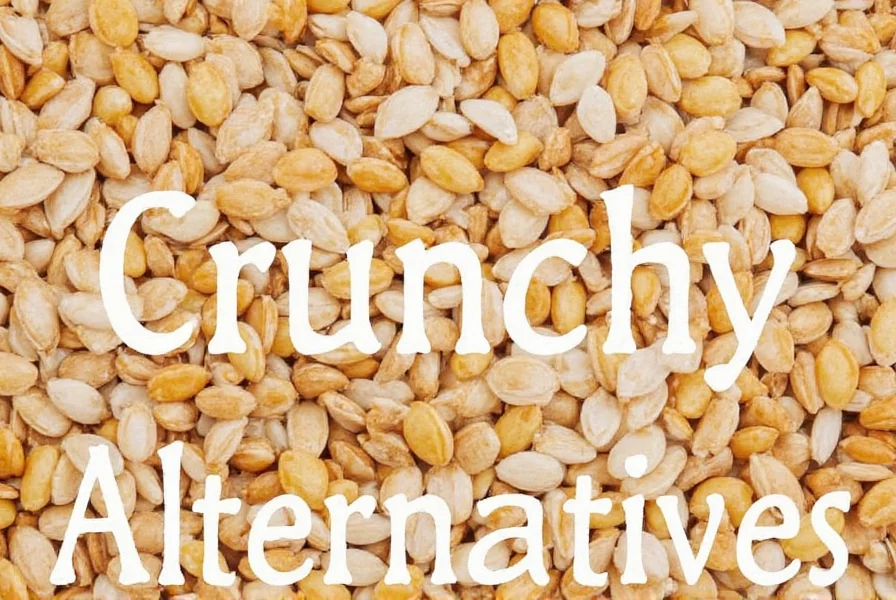
Best for Baking & Bread Toppings
When substituting in baked goods, texture and visual appearance matter as much as flavor. These are the top professional recommendations:
- For bagels and breads: Sunflower seeds provide the closest visual match and similar crunch. Use equal amounts but toast them first for enhanced flavor
- For muffins and cookies: Chia seeds work surprisingly well (use 3/4 of original amount) as they provide similar visual speckling
- For crusts and coatings: Finely ground flaxseeds mixed with coarse sea salt creates a similar textural experience
- For pastry fillings: Ground poppy seeds with a touch of almond extract mimics the nuttiness of sesame paste
Important: When substituting in baking recipes, maintain the same fat content. Sesame seeds contain about 50% oil, so for every 1/4 cup of sesame seeds replaced, add 1 teaspoon of neutral oil to maintain moisture balance.
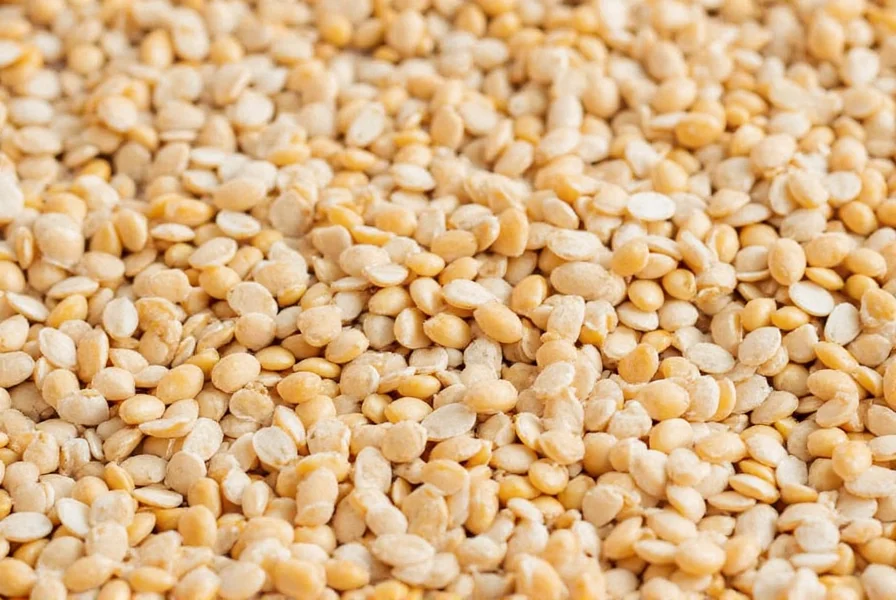
Allergy-Friendly Alternatives
For those with sesame allergies (now recognized as a major allergen by FDA), these substitutes provide safe alternatives without cross-reactivity concerns:
Top Allergy-Safe Options
Pumpkin Seeds (Pepitas)
Why they work: From a different plant family (Cucurbitaceae vs. Pedaliaceae for sesame), making cross-reactivity extremely rare
Best applications: Toasted and sprinkled on salads, blended into seed butters, or used as crust for proteins
Pro tip: Soak in salt water for 1 hour before toasting to enhance crunch and neutralize enzyme inhibitors

Hemp Seeds
Why they work: Complete protein profile with no known cross-reactivity with sesame
Best applications: Smoothies, yogurt toppings, and as a binder in vegan recipes
Pro tip: Use in combination with chia seeds for the "tahini effect" in dressings
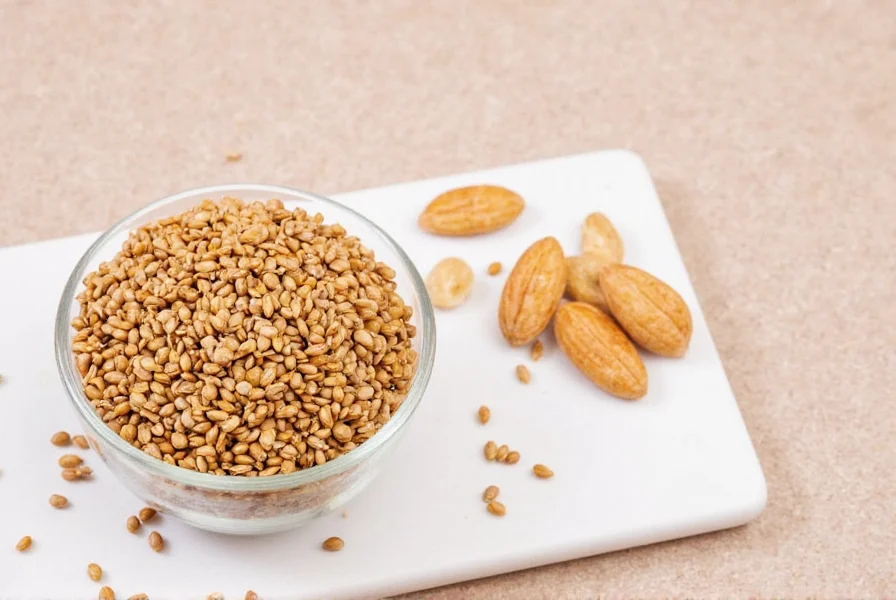
Quinoa Flakes
Why they work: Provides similar texture when toasted and has no relation to sesame
Best applications: As a topping for baked goods or in energy bars
Pro tip: Toast in dry pan until golden for optimal crunch

Nutrition Comparison Chart
| Substitute | Protein (per oz) | Calcium %DV | Best For | Allergy Risk | Toast Time |
|---|---|---|---|---|---|
| Poppy Seeds | 5g | 13% | Asian dishes, baking | Low | 3-4 min |
| Sunflower Seeds | 6g | 3% | Baking, salads | Low | 5-6 min |
| Pumpkin Seeds | 9g | 8% | Allergy-safe, nutrition | None | 4-5 min |
| Chia Seeds | 4g | 18% | Binding, nutrition | Very Low | N/A (no toast) |
| Flaxseeds | 6g | 8% | Baking, binding | Very Low | 3-4 min |
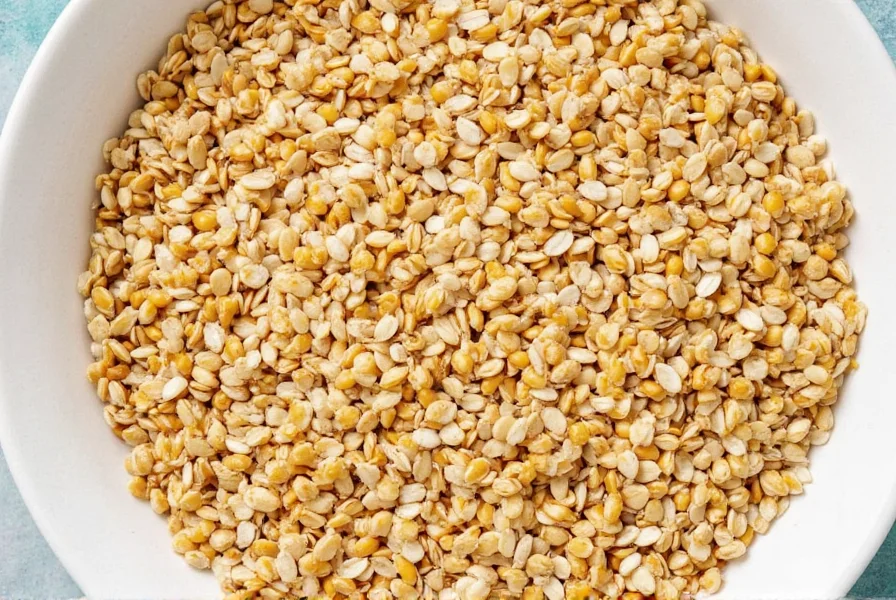
Professional Chef Tips for Perfect Substitution
After testing hundreds of recipes, culinary professionals have identified these critical success factors:
- The Toasting Technique Matters Most: Heat a dry skillet over medium heat. Add seeds and stir constantly for 2-5 minutes until fragrant and slightly darker. Immediately transfer to cool plate to stop cooking. This develops nutty flavors that mimic sesame.
- Ratios Are Crucial: For most applications, use 3/4 the amount of substitute seeds compared to sesame seeds to prevent overpowering flavors.
- Combine for Best Results: For Asian dishes, mix 50% poppy seeds + 50% toasted rice powder. For baking, combine 60% sunflower seeds + 40% flaxseeds.
- Avoid These Mistakes: Don't use raw substitutes in place of toasted sesame seeds. Never substitute chia seeds 1:1 in savory dishes (they become too gelatinous).
- Storage Matters: Toasted substitutes keep freshness for only 2 weeks. Store in airtight container in refrigerator for best results.
Expert-Answered FAQs
What's the absolute best sesame seed substitute for sushi rolls?
Toasted poppy seeds are the professional chef's top choice, but with a critical technique: mix 1 tablespoon of poppy seeds with 1/4 teaspoon of toasted rice powder (mochiko) for every nori sheet. The rice powder creates that distinctive sesame aroma without allergens. Use at 75% of original sesame seed amount to avoid overpowering the delicate fish flavors. For premium sushi, add one tiny drop of toasted sesame oil per roll (if no allergy concerns).
Can I substitute tahini in hummus without changing the texture?
Yes, but with precise technique. Sunflower seed butter makes the closest substitute at a 1:1 ratio, but you must add 1/2 teaspoon of neutral oil (like grapeseed) per 1/4 cup of substitute to match tahini's 50% oil content. Professional tip: Blend the substitute with 1 teaspoon of lemon zest per cup to mimic tahini's slight bitterness. For authentic texture, chill the hummus for 2 hours before serving - this allows the seed butter to set properly.
Which substitute works best for someone with a severe sesame allergy?
Pumpkin seeds (pepitas) are the safest option with virtually no cross-reactivity risks. For baking applications, use toasted pepitas ground to sesame seed size (pulse in food processor 3-4 times). For dressings, pumpkin seed oil provides similar viscosity. Critical tip: Always verify manufacturing facilities - many seed products share equipment with sesame. Look for "sesame-free facility" certification on packaging for severe allergies.
How do I substitute sesame oil in stir-fries?
For authentic stir-fry results, combine 3 parts avocado oil with 1 part toasted poppy seed oil. Heat the oil to 350°F (smoke point of sesame oil) before adding ingredients. For the distinctive nutty aroma, add 1/4 teaspoon of toasted rice powder per cup of stir-fry. Professional chefs recommend this technique maintains the high smoke point while delivering similar flavor complexity without sesame.
What's the most cost-effective substitute for large batch cooking?
Sunflower seeds provide the best value for commercial or large-batch cooking. At approximately $3 per pound (compared to $8 for sesame seeds), they deliver similar culinary functionality. For professional kitchens: toast 5 pounds of sunflower seeds with 1/4 cup neutral oil and 2 tablespoons of maltodextrin (to mimic sesame's natural sugars) for authentic flavor development. This method costs 60% less than using sesame seeds while maintaining nearly identical results in most applications.
How can I replicate sesame crunch in vegan recipes?
For vegan "sesame" crunch, combine equal parts toasted sunflower seeds and puffed quinoa. The quinoa provides the signature pop while sunflower seeds deliver nuttiness. Critical technique: Toss the mixture with 1 teaspoon of maple syrup per cup of seeds and spread on parchment paper. Bake at 300°F for 8 minutes until crisp. This creates the same textural experience as sesame crunch without any allergens.

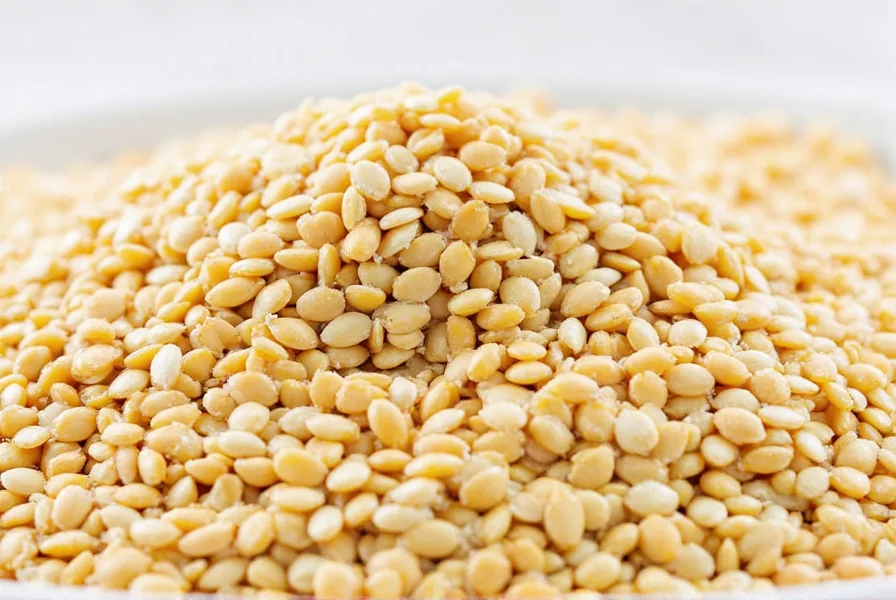









 浙公网安备
33010002000092号
浙公网安备
33010002000092号 浙B2-20120091-4
浙B2-20120091-4